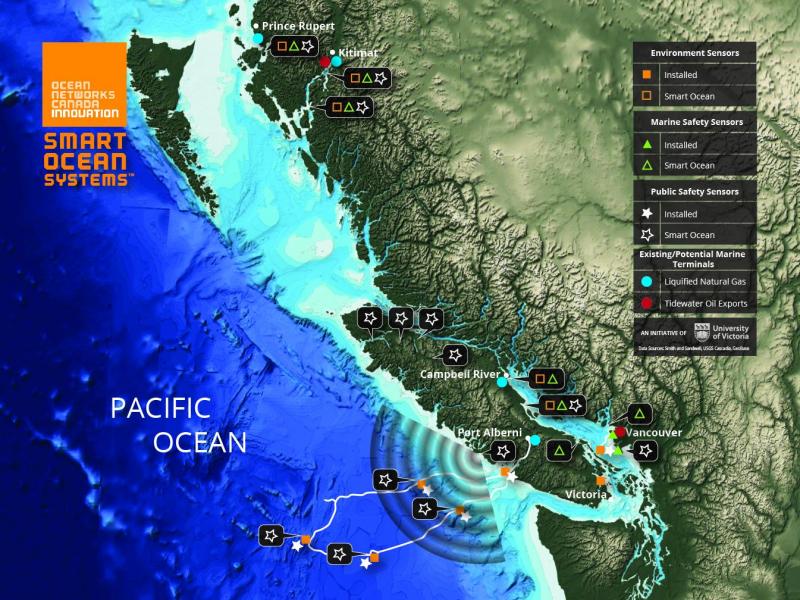Canada’s ability to monitor the coastal waters of British Columbia just got “smarter” now that a new program has been launched to install ocean observing technology off Canada’s West Coast.
“Smart Oceans BC,” a partnership between the Government of Canada’s Western Diversification Program, IBM Canada, and Ocean Networks Canada (ONC), will build upon the NEPTUNE and VENUS subsea observatories with a planned expansion of five cabled ocean observing systems along the northern coast of BC and northern Strait of Georgia.
By Pairing ONC’s unique data management system Oceans 2.0 with IBM Canada’s technologies, the Smart Oceans BC program will use marine sensors and data analysis to enhance environmental stewardship as well as public and marine safety in coastal BC waters.
Observatories that were installed in March/April 2016 are currently undergoing a trial commissioning period before we make an official announcement later this year.
Once tested, the observatories will be used to monitor vessel traffic, waves, currents, and water quality in major shipping arteries and will include a system to predict the impact of offshore earthquakes, tsunamis, storm surges and underwater landslides. The information collected will also provide essential benchmark data about the marine environment to inform science-based decision-making regarding ocean management and ocean use.
The federal government invested $9 million to support the installation andIBM is investing $12 million in cloud computing infrastructure, analytics software, services and skills training. Western Economic Diversification are the major funder of Smart Oceans BC.
A map of the new infrastructure can be viewed here.
ONC estimates the global market for smart oceans systems technology will grow from $4 billion to at least $6 billion by 2020. Part of IBM’s commitment will go toward internships for over a dozen students from BC universities to build subject matter expertise and practical experience in this emerging industry. The students will represent a broad cross-section of disciplines including MBAs, researchers, programmers, and biologists.
IBM and ONC also have plans to establish a Virtual Compute Lab for remote First Nations communities. The system will let First Nations people use any connected device to access a range of ONC and university curriculum in their own community via the Internet, allowing them to attend university without having to physically relocate to a campus.










